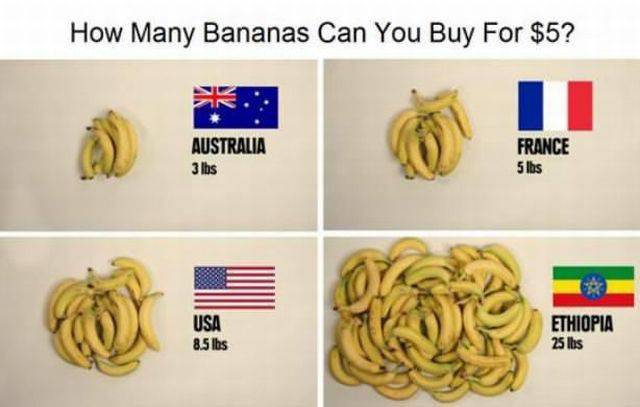Well, dear readers, this is it. The project is drawing to a
close. The deadline’s coming up, and it’s time for me to cease my informative
ramblings and bid thee farewell. It’s been an interesting experience; I’ve done
some blogging before, but not of the academic variety. One of the big things
that I’ve noticed in the last few months is how I’ve become constantly on the
look-out for interesting videos, articles, and other media which I could share
here. My facebook saved links log has grown exponentially. But I’ve also
experienced the benefit of researching and learning about something that I am
interested in; something I care about. I worked on a related topic for my
undergraduate dissertation, and that was something I was very passionate about,
but it was very focussed; this has given me the opportunity to investigate a
broader topic, drawing threads from across biology, geography, engineering, and
agricultural sciences to create a picture that I hope isn’t too bad to look at.
What have I learned?
What have I gained? Well, I’ve deepened my knowledge of the interactions
between the agricultural system and humans; the supply and demand tug-of-war
that can change lives and livelihoods at the drop of a viral post. I’ve learned
about some pretty cool sustainable practices being developed and put into
effect; the farm in Australia growing tomatoes with only seawater and sunlight,
and the cows being fed seaweed to decrease their methane emissions. I’ve also
had a chance to revisit Malthus, something I haven’t studied since my GCSEs,
and my dear vegetarianism-emissions topic.
I've also found my writing changing; the way I choose to interact with readers through my style. As someone who loves writing, this has been a growing experience not just for my scientific knowledge but for my other skills as well. I hope that my style has been enjoyable for you; I've enjoyed developing it further, and having the chance to write science in a more casual way - something I don't get to do so often.
I've also found my writing changing; the way I choose to interact with readers through my style. As someone who loves writing, this has been a growing experience not just for my scientific knowledge but for my other skills as well. I hope that my style has been enjoyable for you; I've enjoyed developing it further, and having the chance to write science in a more casual way - something I don't get to do so often.
Mostly, though, I’ve
been reminded how fragile our agricultural system is; how far we’re pushing
ourselves towards an agrapocalypse through our own wastefulness,
thoughtlessness, and greediness. It sounds harsh, but when it comes to climate
change and environmental detriment, you kind of have to be. We could be feeding
everyone on Earth, but instead people are hungry and landfills of food are
thrown away every year. We could be living with a sustainable, environmentally
friendly agricultural system; instead we increase our emissions and land use by
producing vast amounts of meat, cutting down forest for ranches and monoculture.
We could be solving issues of low yield, drought, or food insecurity with
scientific advancements both genetic and mechanical. But we’re afraid, so we
stick with the industry we know.
There are solutions. There are policies that could be
implemented; things that could make a real, tangible difference. But if you’re
looking for a way to make your diet eco-friendly, here are some points I’ve
gathered during this project:
·
Decrease the amount of meat you eat. You don’t
have to go veggie, but you can cut down on animal products and that really will
make a big difference to your carbon footprint.
·
Shop ethically. Research what you’re buying,
find food that’s produced in sustainable ways, support farms that use
sustainable practices, even fund kickstarters that you think might be making a
difference on the road to sustainable agriculture. And don’t just jump on the
next food fad that blows across your newsfeed. That’s how you end up with bags
of unused millet sitting in your kitchen cupboard.
·
Waste less. Only buy what you need. Buy things
at the end of the day when they’re about to be thrown away; they’re still good,
and they’re cheaper anyway. Two birds, one stone.
·
Keep informed. About policies, about
developments, about the real impacts of that new ‘superfood’. Be that person
who knows stuff.
But one of the most important things, something I fully believe in, is to vote. Make your voice heard; let your government know your opinions. If Italy can have a vegan city and France can ban food waste, we can make a difference all over the world. It’s cheesy and cringey, but it’s true.
I have some hope for
us. The agrapocalypse may be coming – for the people living in food insecurity,
it may feel as if it’s already here – but we have the ability to counteract it.
The agricultural system is complex, and full of difficulties, but there are
solutions in there too. Maybe we’ll find them.

.jpg)

.jpg)

